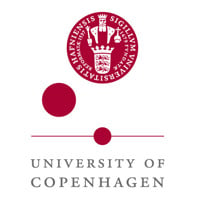Explainability Methods For Knowledge-intensive Natural Language Understanding
Position Details (PhD Program)
The PhD fellowship is offered in the context of an ERC Starting Grant held by Isabelle Augenstein on ‘Explainable and Robust Automatic Fact Checking (ExplainYourself)’. ERC Starting Grant is a highly competitive funding program by the European Research Council to support the most talented early-career scientists in Europe with funding for a period of 5 years for blue-skies research to build up or expand their research groups.
ExplainYourself proposes to study explainable automatic fact checking, the task of automatically predicting the veracity of textual claims using machine learning (ML) methods, while also producing explanations about how the model arrived at the prediction. Automatic fact checking methods often use opaque deep neural network models, whose inner workings cannot easily be explained. Especially for complex tasks such as automatic fact checking, this hinders greater adoption, as it is unclear to users when the models’ predictions can be trusted. Existing explainable ML methods partly overcome this by reducing the task of explanation generation to highlighting the right rationale. While a good first step, this does not fully explain how a ML model arrived at a prediction. For knowledge intensive natural language understanding (NLU) tasks such as fact checking, a ML model needs to learn complex relationships between the claim, multiple evidence documents, and common sense knowledge in addition to retrieving the right evidence. There is currently no explainability method that aims to illuminate this highly complex process. In addition, existing approaches are unable to produce diverse explanations, geared towards users with different information needs.
ExplainYourself radically departs from existing work in proposing methods for explainable fact checking that more accurately reflect how fact checking models make decisions and are useful to diverse groups of end users. It is expected that these innovations will apply to explanation generation for other knowledge-intensive NLU tasks, such as question answering or entity linking.
The project team will consist of the principle investigator, two PhD students and postdocs each, collaborators from CopeNLU as well as external collaborators.
The role of the PhD student to be recruited in this call will be to research explainability methods for knowledge-intensive NLU tasks in collaboration with the larger project team.
The principal supervisor is Professor Isabelle Augenstein, Department of Computer Science, e-mail: [email protected]. The PhD student will be co-supervised by Postdoctoral Researcher Pepa Atanasova, Department of Computer Science, email: [email protected].
The PhD programme
Depending of your level of education, you can undertake the PhD programme as either:
Option A: A three year full-time study within the framework of the regular PhD programme (5+3 scheme), if you already have an education equivalent to a relevant Danish master’s degree.
Option B: An up to five year full-time study programme within the framework of the integrated MSc and PhD programme (the 3+5 scheme), if you do not have an education equivalent to a relevant Danish master´s degree – but you have an education equivalent to a Danish bachelors´s degree.
Option A: Getting a position on the regular PhD programme
Qualifications needed for the regular programme
To be eligible for the regular PhD programme, you must have completed a degree programme, equivalent to a Danish master’s degree (180 ECTS/3 FTE BSc + 120 ECTS/2 FTE MSc) related to the subject area of the project, i.e. Computer Science, ideally with a specialisation in Machine Learning, Natural Language Processing or similar. For information of eligibility of completed programmes, see General assessments for specific countries and Assessment database.
Terms in the regular programme
Employment as PhD fellow is full time and for maximum 3 years.
Employment is conditional upon your successful enrolment as a PhD student at the PhD School at the Faculty of SCIENCE, University of Copenhagen. This requires submission and acceptance of an application for the specific project formulated by the applicant.
Terms of appointment and payment accord to the agreement between the Danish Ministry of Taxation and The Danish Confederation of Professional Associations on Academics in the State. The position is covered by the Protocol on Job Structure.
Option B: Getting a position on the integrated MSc and PhD programme
Qualifications needed for the integrated MSc and PhD programme
If you do not have an education equivalent to a relevant Danish master´s degree, you might be qualified for the integrated MSc and PhD programme, if you have an education equivalent to a relevant Danish bachelor´s degree. Here you can find out, if that is relevant for you: General assessments for specific countries and Assessment database.
Terms of the integrated programme
To be eligible for the integrated scholarship, you are (or are eligible to be) enrolled at the faculty’s master programme in Computer Science.
Students on the integrated programme will enroll as PhD students simultaneously with completing their enrollment in this MSc degree programme.
The duration of the integrated programme is up to five years, and depends on the amount of credits that you have passed on your MSc programme. For further information about the Integrated MSc and PhD programme, please see: https://science.ku.dk/phd/studystructure/integratedphd/
The programme consists of two parts. In Part A, which is at most 3 years, the candidate completes a MSc while also.
The Integrated MSc and PhD is divided into two parts:
Part A: The student completes the MSc programme and concurrently completes one third of the PhD programme (one FTE). Part A is completed when the student completes the MSc programme and must be organized in such a way that the MSc programme is completed two years before completion of the entire integrated programme of study.
Part B: The student is a PhD student exclusively and completes the PhD programme in accordance with the approved PhD plan. Part B can be commenced when once the student has completed the MSc programme (Part A), which is when exactly two years of the full 3+5 programme remain, and if the regular assessments have been satisfactory, meaning that the student has lived up to the requirements in the PhD plan.
In the period up to the completion of the MSc programme (Part A), the student is entitled to 48 PhD grant portions (in Danish: ph.d.-SU klip) as well as being paid an hourly rate for ‘duty work’, for instance, acting as a teaching assistant.
During the last two years, the student is employed as a PhD scholar in accordance with the collective agreement of the Danish Confederation of Professional Associations (AC) (in Danish: AC-overenskomsten) (Part B). The position is covered by the Protocol on Job Structure.
Responsibilities and tasks in both PhD programmes
- Complete and pass the MSc education in accordance with the curriculum of the MSc programme (ONLY if you are enrolled into the integrated MSc and PhD programme)
- Carry out a research project with increasing autonomy from your supervisors
- Complete PhD course work corresponding to approx. 30 ECTS / ½ FTE, which includes e.g. summer school attendance, general skills development courses as well as self-study
- Collaborate with researchers both within the research group, and with external project partners
- Participate in a change of environment, i.e. a stay at another research institution, preferably abroad
- Teaching and knowledge dissemination activities
- Write scientific papers aimed at high-impact journals and conferences
- Write and defend a PhD thesis on the basis of your project
We are looking for the following qualifications:
- Professional qualifications relevant to the PhD project
- Relevant publications (if any)
- Relevant work experience (if any)
- Other relevant professional activities
- Curious mind-set with a strong interest in Explainable Natural Language Understanding
- Good written and oral English language skills
Terms of employment
Employment as PhD fellow is full time and for maximum 3 years.
Employment is conditional upon your successful enrolment as a PhD student at the PhD School at the Faculty of SCIENCE, University of Copenhagen. This requires submission and acceptance of an application for the specific project formulated by the applicant.
Terms of appointment and payment accord to the agreement between the Danish Ministry of Taxation and The Danish Confederation of Professional Associations on Academics in the State. The position is covered by the Protocol on Job Structure.
Application and Assessment Procedure
Your application including all attachments must be in English and submitted electronically by clicking APPLY NOW below.
Please include:
- Cover Letter, detailing your motivation and background for applying for this PhD position;
- Curriculum vitae, including information about your education, experience, language skills and other skills relevant for the position
- Original diplomas for Bachelor of Science or Master of Science and transcript of records in the original language, including an authorized English translation if issued in another language than English or Danish. If not completed, a certified/signed copy of a recent transcript of records or a written statement from the institution or supervisor is accepted.
- Publication list (if possible)
- Reference letters (if available)
Application deadline:
The deadline for applications is Wednesday, 1 March 2023, 23:59 GMT +1.
We reserve the right not to consider material received after the deadline, and not to consider applications that do not live up to the abovementioned requirements.



 University of Copenhagen
University of Copenhagen 